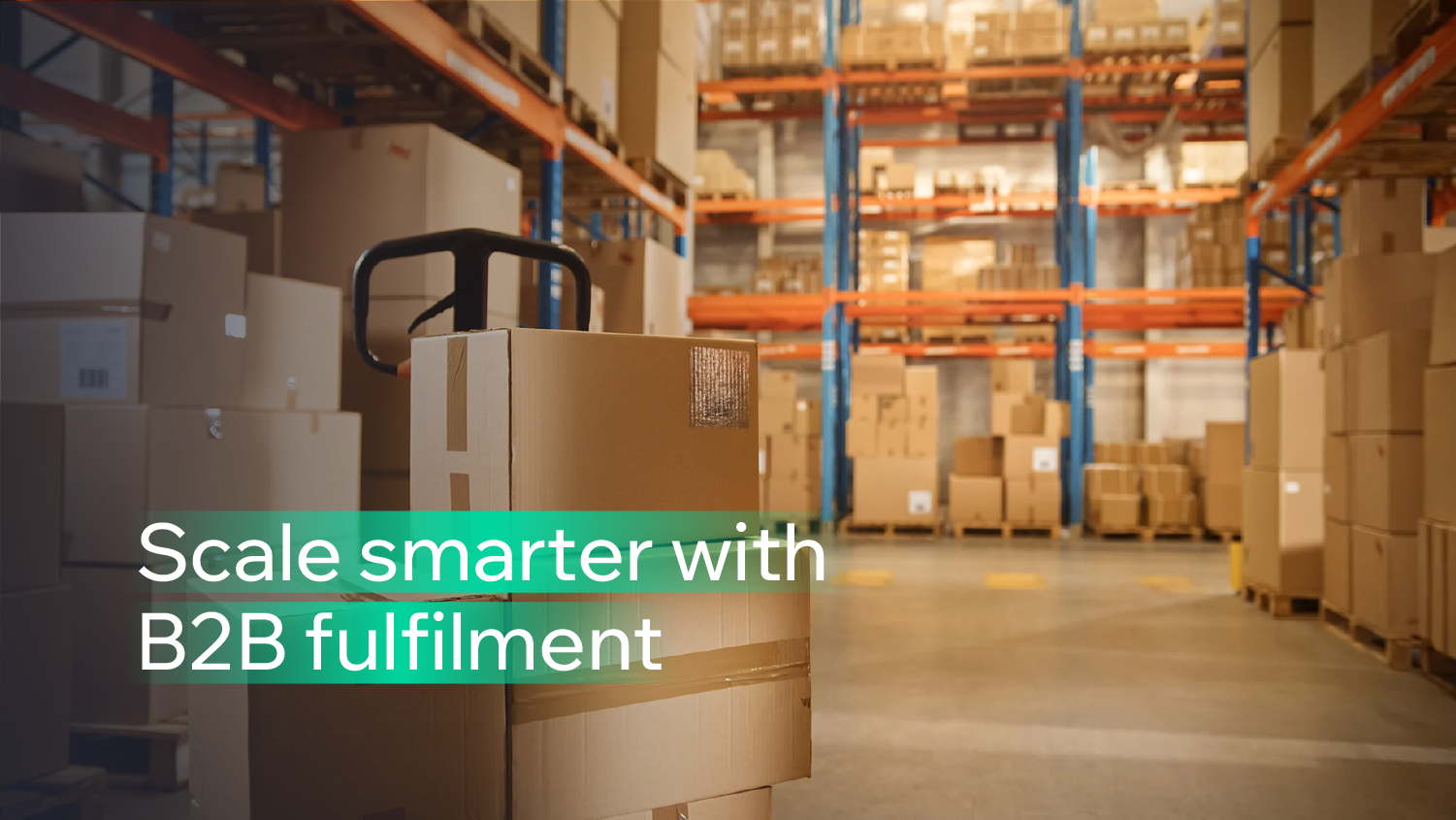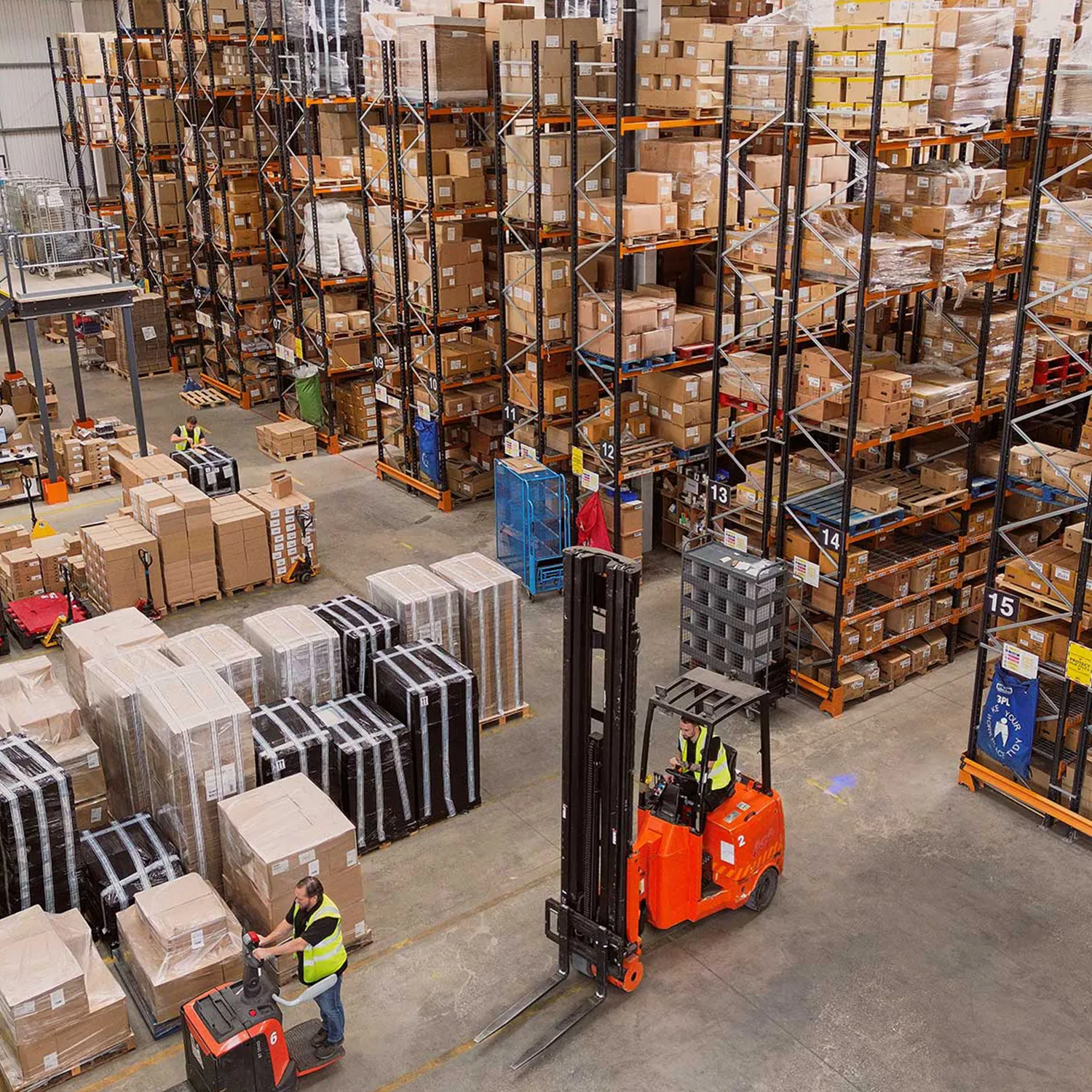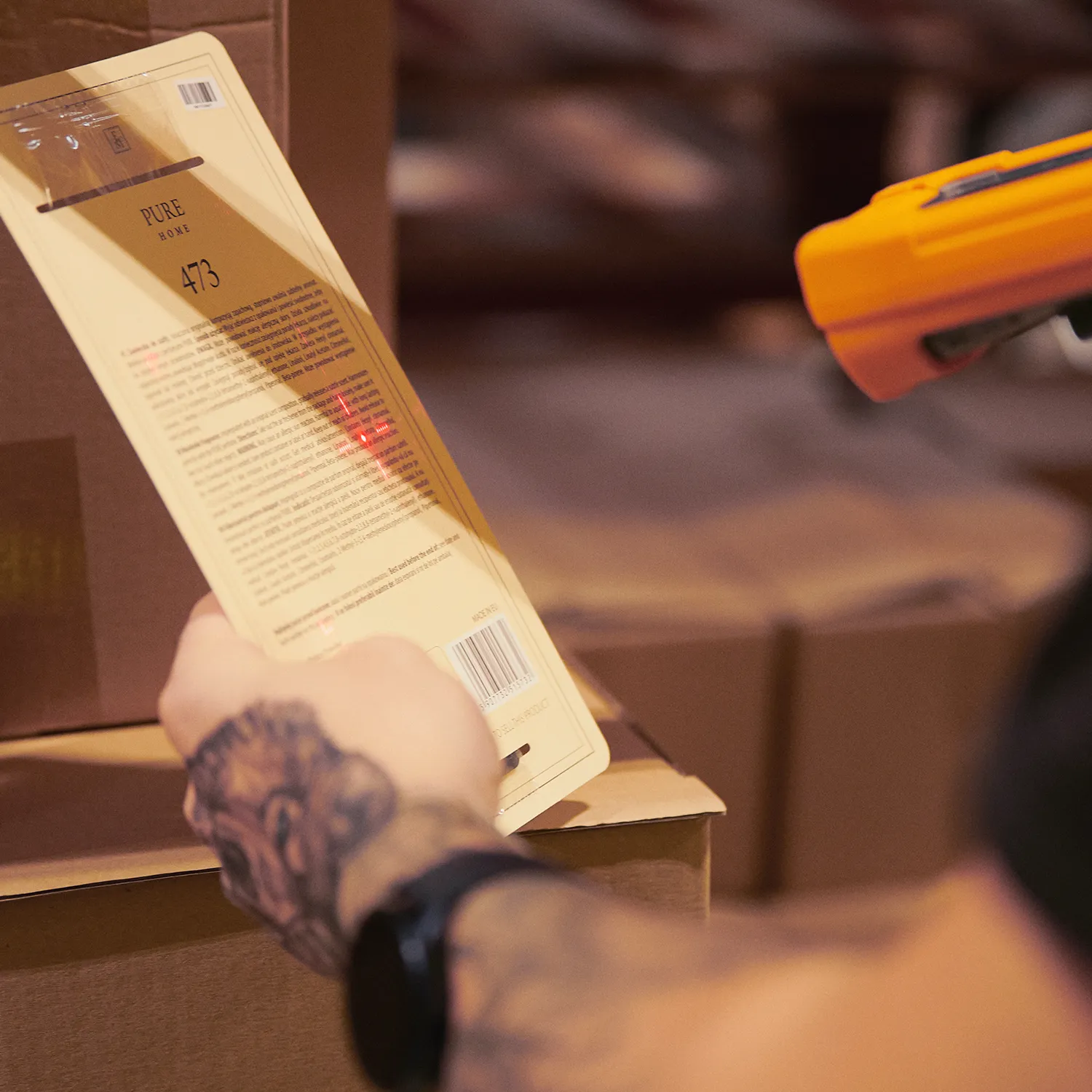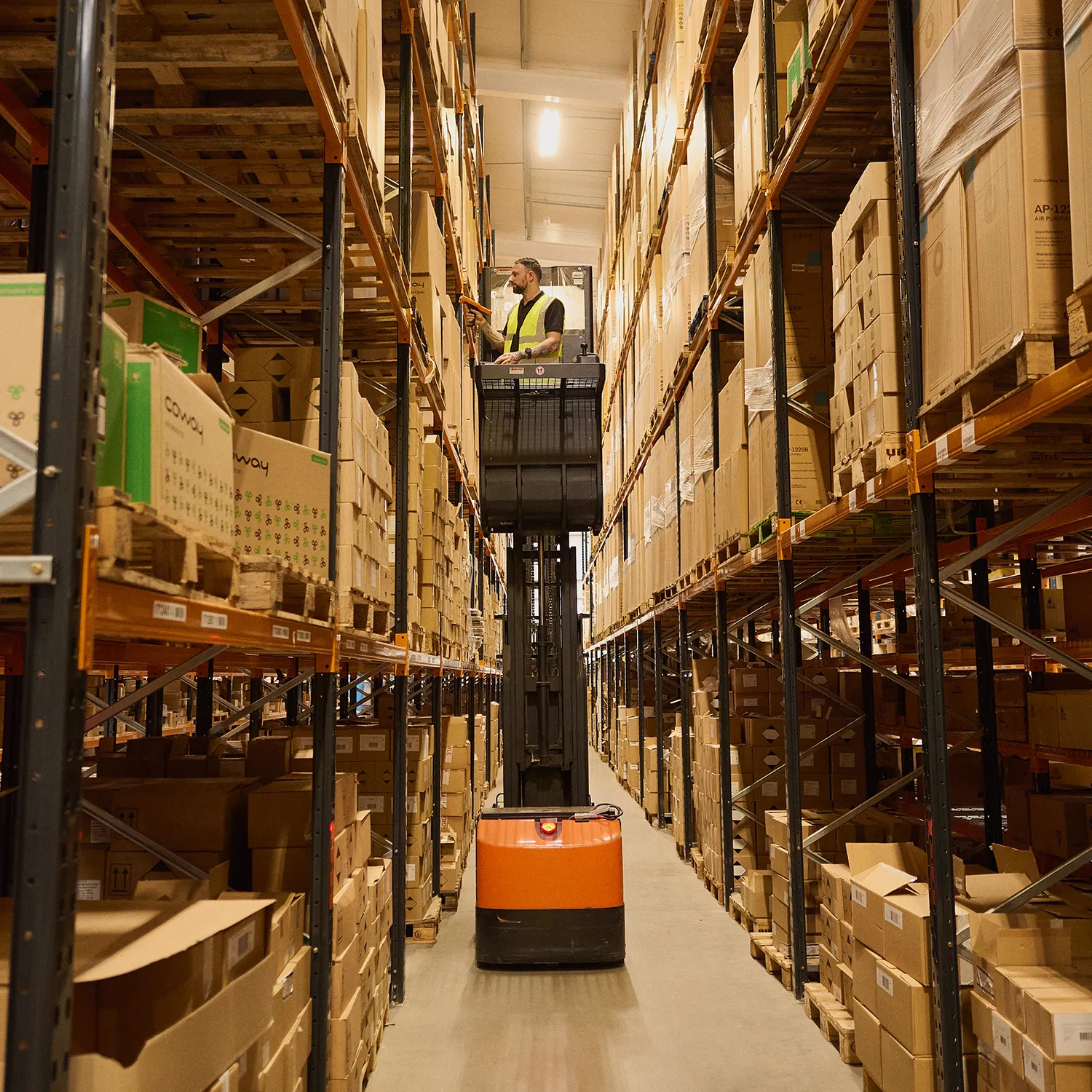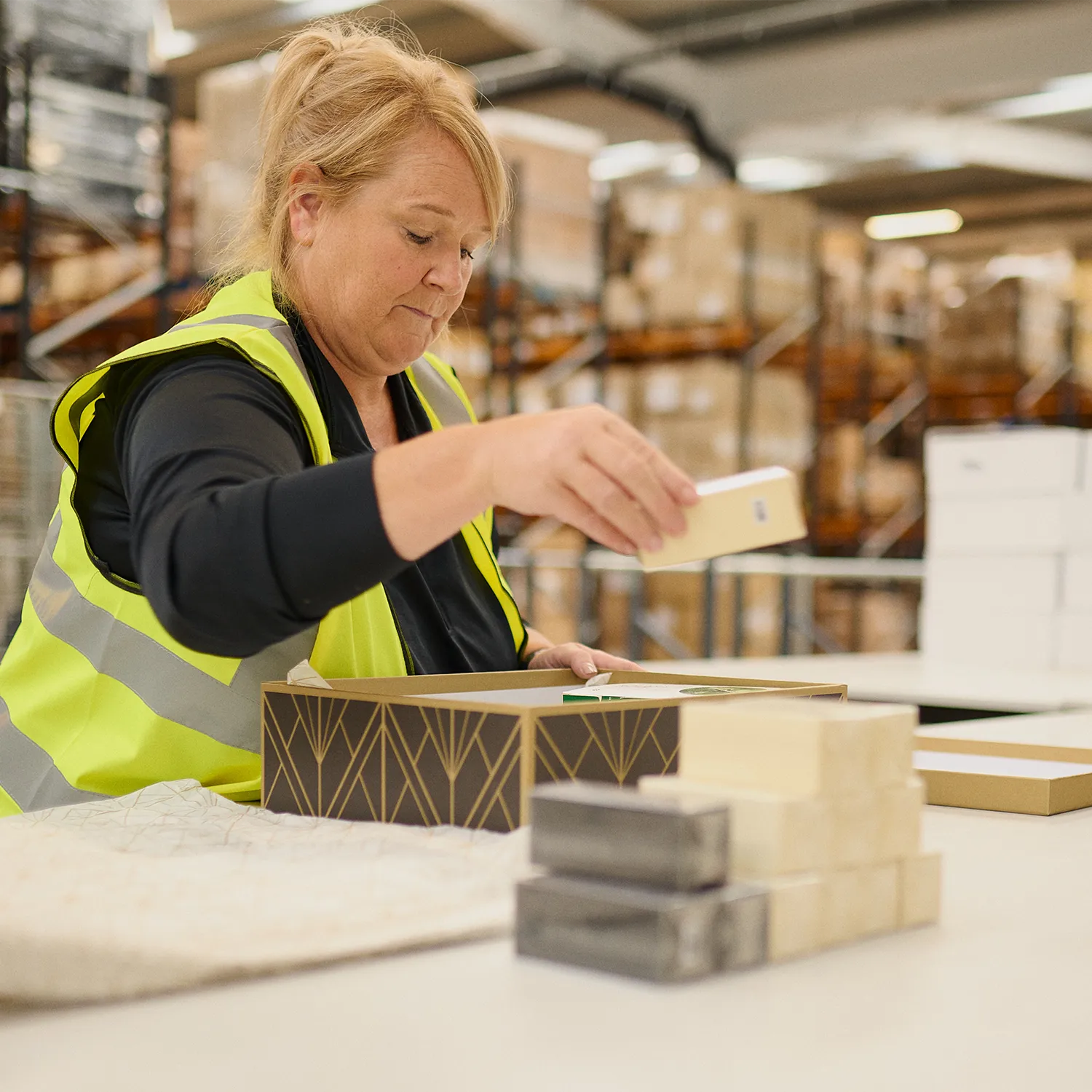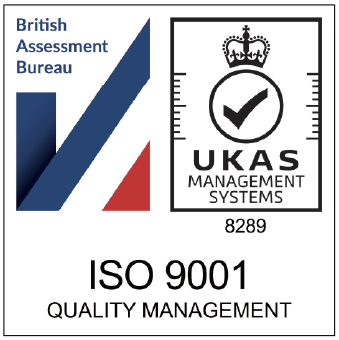Article Overview
- B2B fulfilment supports larger, more complex orders that require accuracy, timing, and scalability.
- Manufacturers and wholesalers benefit from outsourced fulfilment by streamlining operations and reducing overhead.
- A B2B 3PL partner enables real-time visibility across inventory, shipping, and compliance documentation.
- Services like kitting, pallet shipping, and scheduled deliveries are key for B2B growth.
- Using a fulfilment partner like 3PL reduces friction when scaling into new markets or taking on larger accounts.
The unique logistics demands of B2B fulfilment
B2B fulfilment differs significantly from D2C (direct-to-consumer) logistics. While D2C often focuses on speed, small parcel volume, and branded packaging, B2B orders usually involve bulk shipments, strict delivery windows, and bespoke requirements. A missed shipment for a B2B buyer might delay an entire production run or cause issues in a retail distribution chain.
For manufacturers and wholesalers, fulfilment must be both precise and flexible. A B2B 3PL partner must not only handle large orders, but also understand EDI (electronic data interchange), compliance documentation, and account-level service expectations.
At 3PL, we support B2B clients by managing everything from pallet builds and freight coordination to automated reporting and scalable stock control – allowing internal teams to focus on relationships, not logistics.
Why B2B fulfilment supports scalable growth
Better use of internal resources
Managing B2B logistics in-house often involves a blend of warehouse staff, admin teams, and sales coordination. As order volumes increase, this patchwork approach leads to bottlenecks. Outsourcing fulfilment allows your team to focus on higher-value tasks – like expanding into new markets or securing key accounts.
Consistency across clients
When fulfilling large, recurring orders, consistency is critical. A B2B fulfilment partner can standardise packing, documentation, labelling, and delivery methods for each client, ensuring every shipment meets expectations. This is especially valuable for wholesalers selling into retail chains or franchises.
Scalable infrastructure without fixed overhead
Fulfilment costs increase with complexity. Managing warehouse space, staff, forklifts, and systems adds up quickly. With a 3PL, you only pay for the space and resources you use. If a big order lands, your fulfilment partner can flex capacity without forcing you to scale in-house operations.
At 3PL, we offer scalable pallet storage, pick and pack services, and account-based fulfilment workflows designed for high-volume businesses. Our infrastructure allows B2B businesses to grow without hitting operational ceilings.
Enhanced reporting and visibility
B2B operations demand a higher level of transparency. Your clients want to know where their orders are, what’s in each delivery, and when it will arrive. A good fulfilment partner offers this data in real-time.
Our clients access all their reports, stock movements, and delivery tracking through 3PL Fusion. It provides audit trails, order confirmation data, and live dashboards that support procurement, customer service, and finance teams.
Key B2B fulfilment services that support growth
Not all 3PL services are optimised for B2B. Here are the features that matter most:
Palletised and bulk shipping
Large orders require skilled handling, load planning, and carrier coordination. A good fulfilment provider can arrange pallet builds, shrink-wrapping, and freight labelling that meets delivery criteria for each buyer.
Scheduled and timed deliveries
Retailers, production sites, and wholesalers often require orders to be delivered during specific windows. Your 3PL should offer flexible despatch and carrier services that can meet these SLAs.
Custom packing and labelling
Many B2B buyers require tailored packaging, including branded labels, specific box sizes, or consolidated product codes. Our warehouse team executes these tasks through defined workflows, reducing risk and returns.
Returns and reverse logistics
Mistakes happen, especially in complex orders. Your 3PL must be able to manage reverse logistics – including inspection, restocking, or replacements – in a structured way. This keeps your accounts running smoothly and your clients confident in your service.
Real-world examples of scalable B2B fulfilment
A home goods manufacturer moved to 3PL after struggling to manage multi-SKU pallet shipments to national retailers. With their in-house team overwhelmed, fulfilment errors were rising and delivery SLAs were missed.
By migrating to 3PL:
- We implemented pick-to-pallet workflows
- Created automated reporting by retail partner
- Assigned timed carrier slots via integrated freight networks
Their on-time delivery rate increased by 24% in three months, and they were able to onboard two additional retail partners without hiring more staff.
Another example is a fast-growing packaging wholesaler supplying hundreds of B2B customers monthly. With Fusion, they centralised order processing, automated custom packing slips per client, and introduced minimum stock alerts.
This gave their sales team confidence to chase bigger accounts, knowing fulfilment could scale with them.
Use fulfilment to drive wholesale growth
B2B success depends on relationships, accuracy, and reliability. A strategic fulfilment partner doesn’t just ship boxes – they help deliver trust and consistency to your buyers.
At 3PL, we work with wholesalers, distributors, and manufacturers to design bespoke B2B fulfilment operations that grow with your brand.
If you’re ready to offload logistics complexity and scale more confidently, we’d love to help.
Scale without the stress
Whether you’re growing wholesale accounts or expanding into retail distribution, our team is here to help you scale operations without increasing pressure on your internal team.
Speak to us about building a tailored B2B fulfilment strategy that grows with your business.
Speak to 3PL about your order fulfiment
It’s time to supercharge your business and overtake your competitors. Speak to 3PL today and find out how we can take your ecommerce and B2B fulfilment to the next level.
